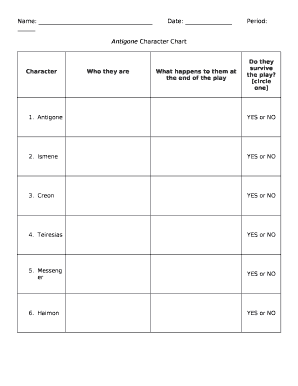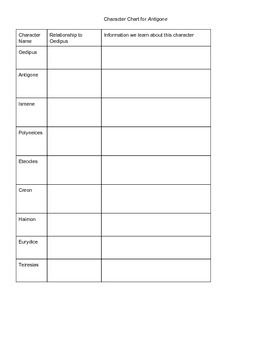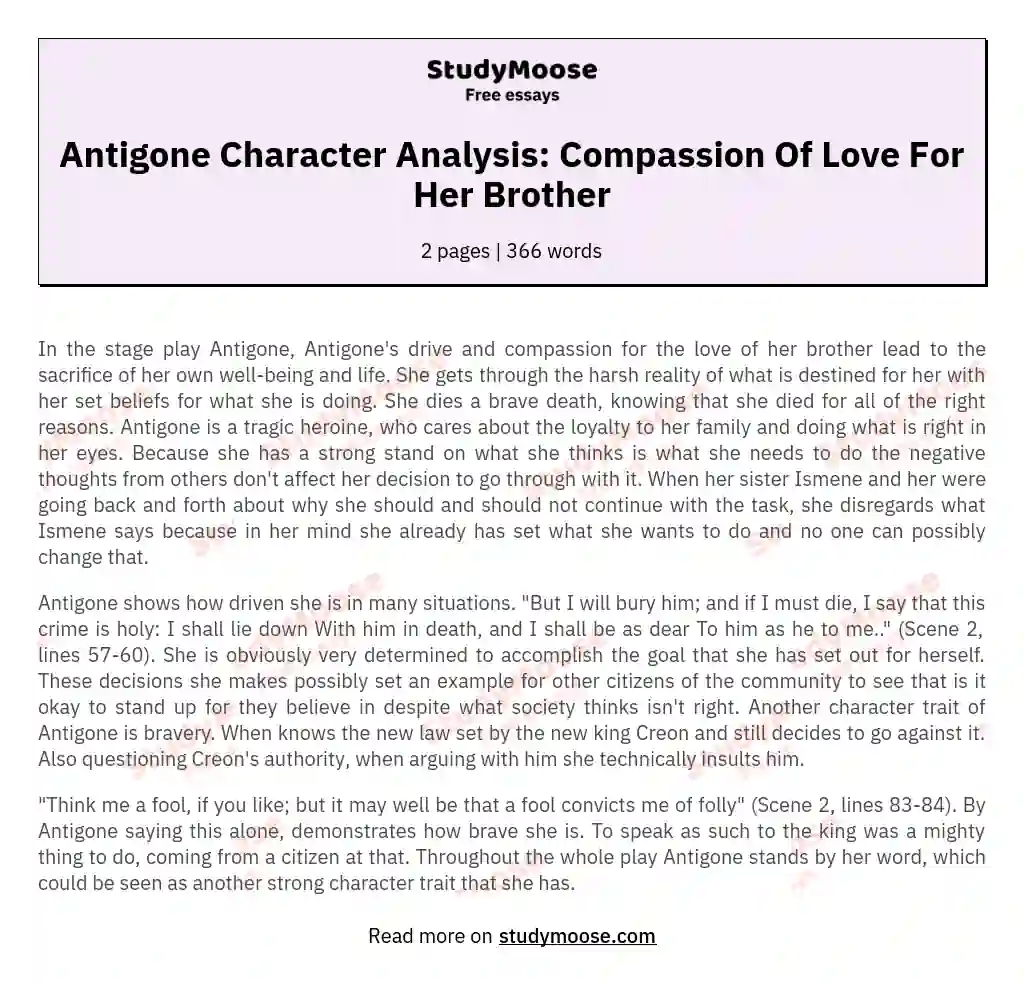Antigone is a play written by the ancient Greek playwright Sophocles. It tells the story of Antigone, the daughter of the fallen king Oedipus, as she defies the laws of the state and buries her brother Polynices, who has been declared a traitor. In doing so, she faces the consequences of her actions and ultimately becomes a tragic hero. The play also includes a number of other important characters, each of whom plays a unique role in the story and helps to illustrate the themes of the play.
One of the main characters in Antigone is, of course, Antigone herself. Antigone is a strong-willed and courageous young woman who is willing to risk everything in order to do what she believes is right. She is deeply loyal to her family and is willing to defy the laws of the state in order to give her brother a proper burial, even though it means she will be punished severely. Antigone's actions ultimately lead to her tragic end, but they also serve as a testament to her bravery and determination.
Another important character in Antigone is her sister, Ismene. Ismene is less brave and more practical than Antigone, and she initially tries to talk her sister out of burying Polynices. However, Ismene ultimately decides to stand by Antigone and support her, even though it means she will also face punishment. Ismene's decision to support her sister despite the risks illustrates the close bond between the two sisters and their willingness to stand by each other in difficult times.
The play's main antagonist is Creon, the king of Thebes. Creon is a stubborn and prideful man who is determined to maintain his authority at all costs. He believes that his laws must be obeyed without question, and he is willing to punish anyone who defies him. Creon's pride ultimately leads to his downfall, as he refuses to listen to the advice of others and makes a series of decisions that ultimately lead to the tragic end of Antigone and her family.
Another important character in Antigone is the prophet Tiresias, who advises Creon on the importance of respecting the gods and giving Polynices a proper burial. Tiresias is a wise and respected figure in Thebes, and his words carry great weight. However, Creon ultimately ignores Tiresias' advice and pays the price for his stubbornness.
Finally, the character of Haemon, Creon's son, is also important in the play. Haemon is initially loyal to his father, but he becomes increasingly disillusioned with Creon's actions as the play progresses. Haemon ultimately defies his father and pleads with him to listen to reason, but Creon refuses to listen and Haemon ultimately dies as a result. Haemon's death serves as a tragic reminder of the consequences of stubbornness and pride.
In conclusion, the characters in Antigone are complex and multi-faceted, and each plays a unique role in the story. Antigone herself is a tragic hero who is willing to risk everything in order to do what she believes is right, while her sister Ismene stands by her despite the risks. The play's main antagonist, Creon, is a stubborn and prideful man whose actions ultimately lead to tragedy, while the prophet Tiresias and the character of Haemon serve as cautionary tales about the dangers of ignoring the advice of others. Together, these characters help to illustrate the themes of the play and make it a timeless classic of Greek literature.









